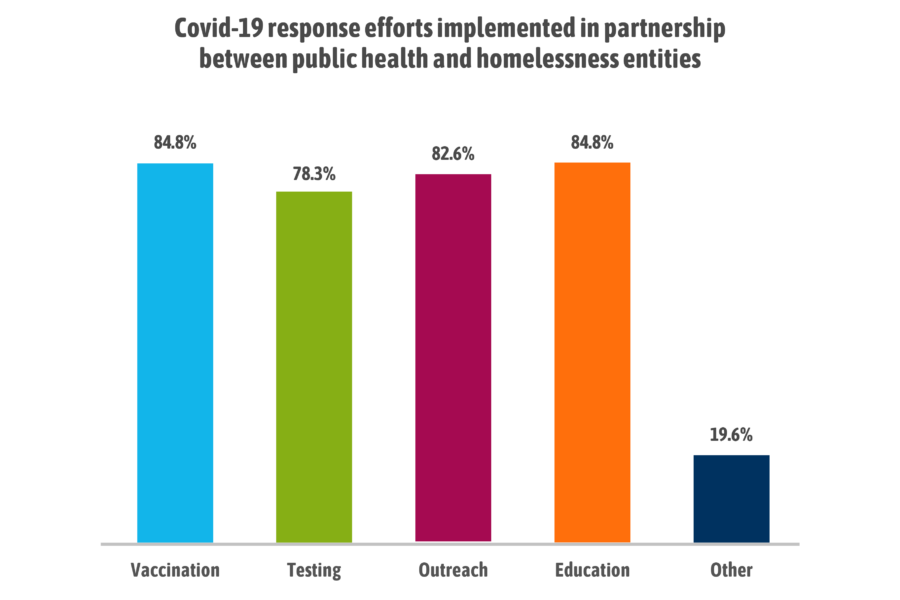This is a summary of results and recommendations from a survey administered by Community Solutions to better understand engagement between local public health and homeless response systems.
According to Dr. Sandro Galea, the dean of the Boston University School of Public Health, three criteria must be met for an issue to be considered a public health crisis. The problem must: 1) affect a large number of people, 2) threaten health over the long term, and 3) require large-scale solutions.
Homelessness has proven to meet all three criteria. Whether or not someone has safe and stable housing functions as a powerful social determinant of poor physical and mental health. People who are unhoused are disproportionately burdened with high rates of acute, chronic, and infectious diseases, resulting in widespread community- and population-level impact. As homelessness continues to present as a large-scale, systemic challenge, Built for Zero communities have demonstrated that solving it demands the kinds of population-level interventions common to the field of public health.
Though homelessness has long been a public health crisis, local public health departments have not traditionally participated in homeless response systems. Yet in the face of the Covid-19 pandemic, public health and homeless response sectors demonstrated remarkable will and capacity to partner to ensure people experiencing homelessness — and their broader communities — were safe. These partnerships emphasize the crucial role that public health can play in creating and sustaining systems designed to end homelessness at a population level.
Community Solutions sought to understand the most strategic role for public health in driving reductions in homelessness and effective approaches for engaging public health agencies. As part of this effort, Community Solutions conducted an online survey of Continuum of Care (CoC) and other local homeless response leaders across Built for Zero communities in the U.S. to take stock of the nature of partnerships across local public health and homeless response systems.
Summary of Key Findings
Responses illustrated a range of engagement levels between local public health and homeless response organizations. All communities (n = 46) reported cross-sector engagement in at least one form, but the extent of engagement varied across communities.
Homeless response organizations in most communities have at least some relationship with their local health departments.
Over a third (37%) of our respondents indicated that their organization has a strong relationship with their local health department. Yet some noted that these working relationships are often focused on select crisis issues, feel highly dependent on the individuals serving in key roles, and can become complicated when multiple public health entities overlap in a CoC’s jurisdiction.
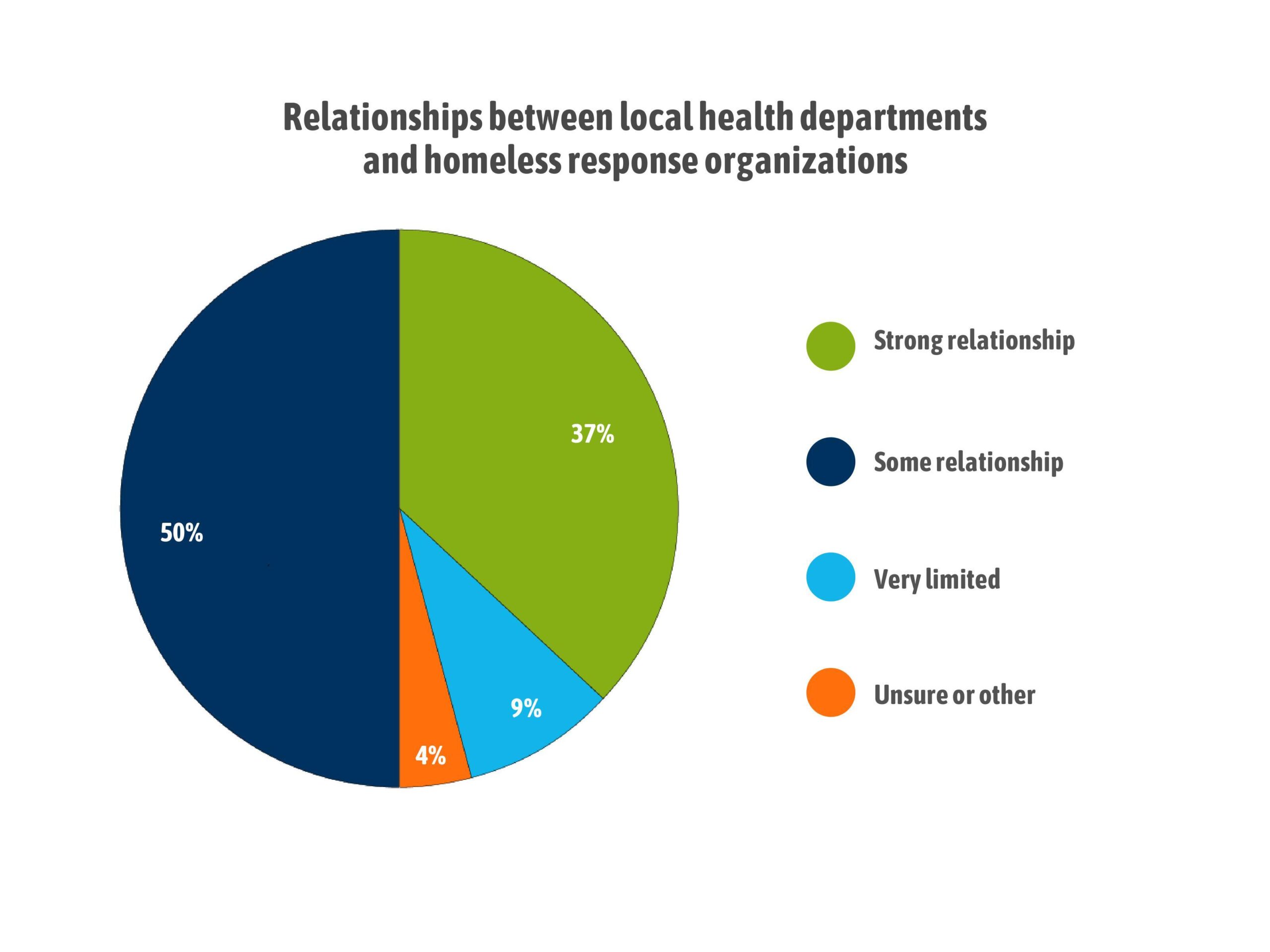
Local public health and homeless response systems collaborated to respond to the COVID-19 pandemic in nearly every (95.7%) community.
Respondents feel these collaborations opened lines of communication for relationship-building and facilitated continued cross-sector partnership.
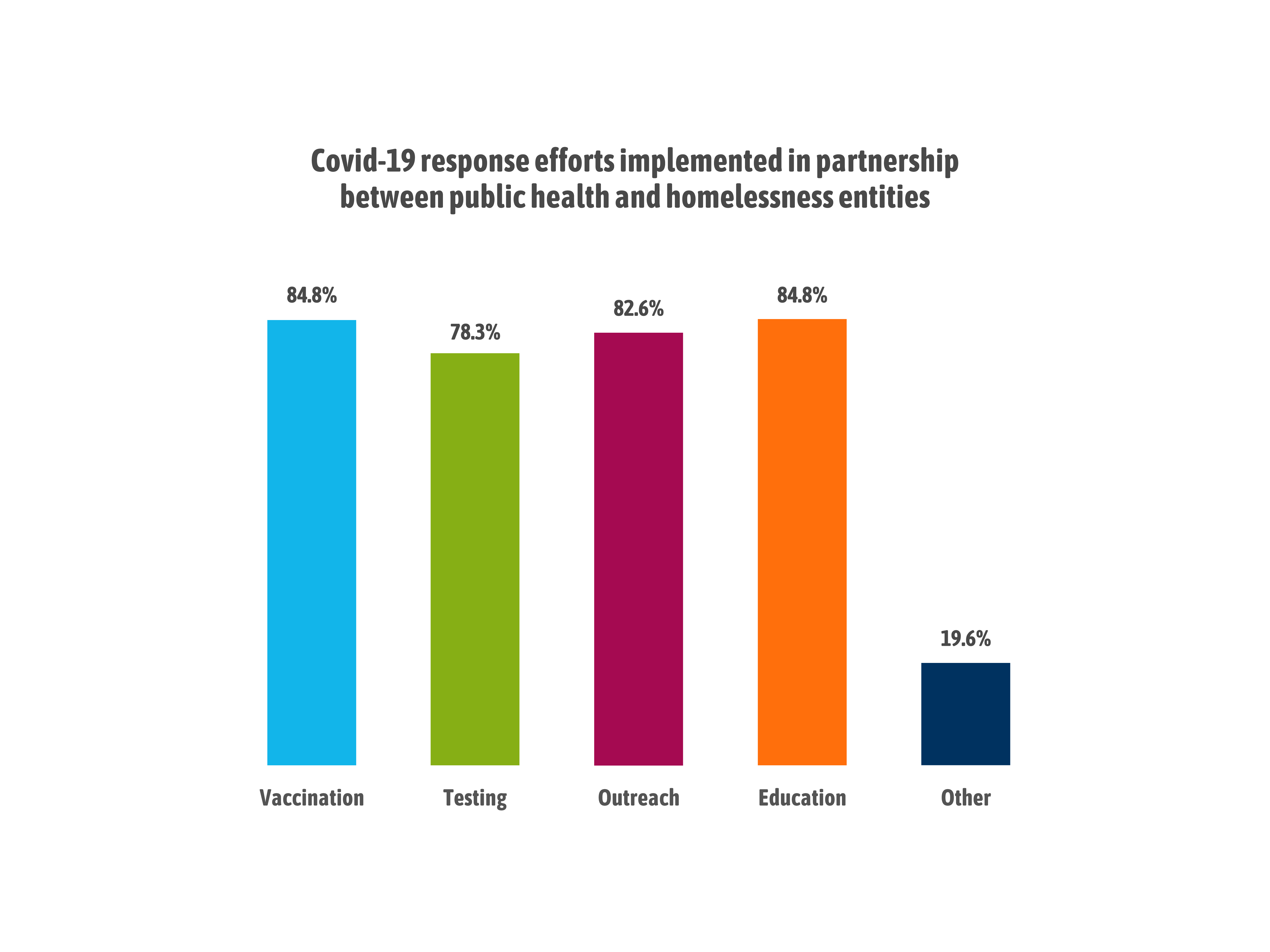
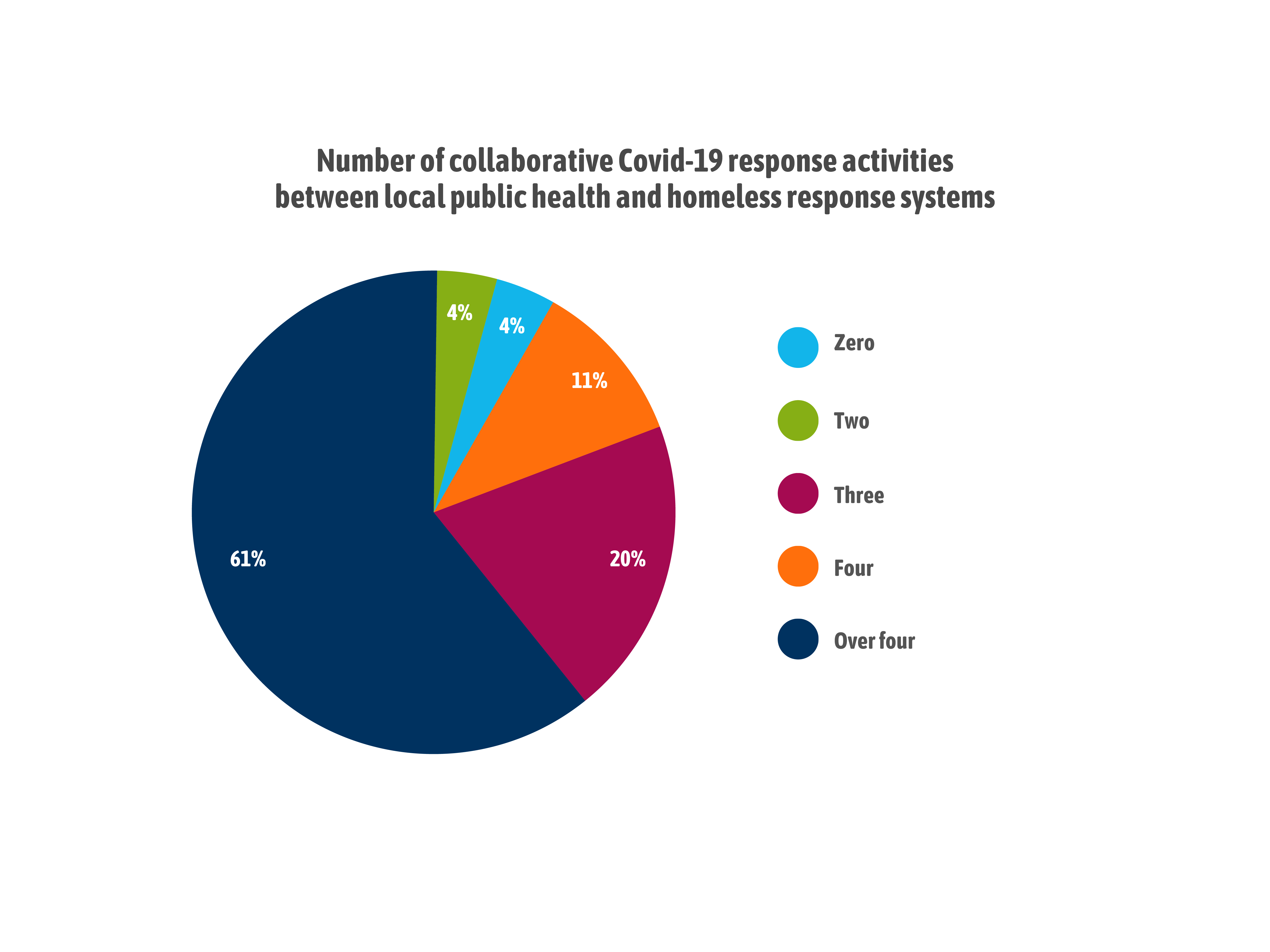
The number of support services related to homelessness provided by local health departments varies considerably across communities.
A fourth of our sample (n = 11) indicated that their local health department did not provide any of the five support services asked about (i.e., shelters, encampments, during the Point-in-Time count, mental health counseling, and medicaid/insurance challenges).
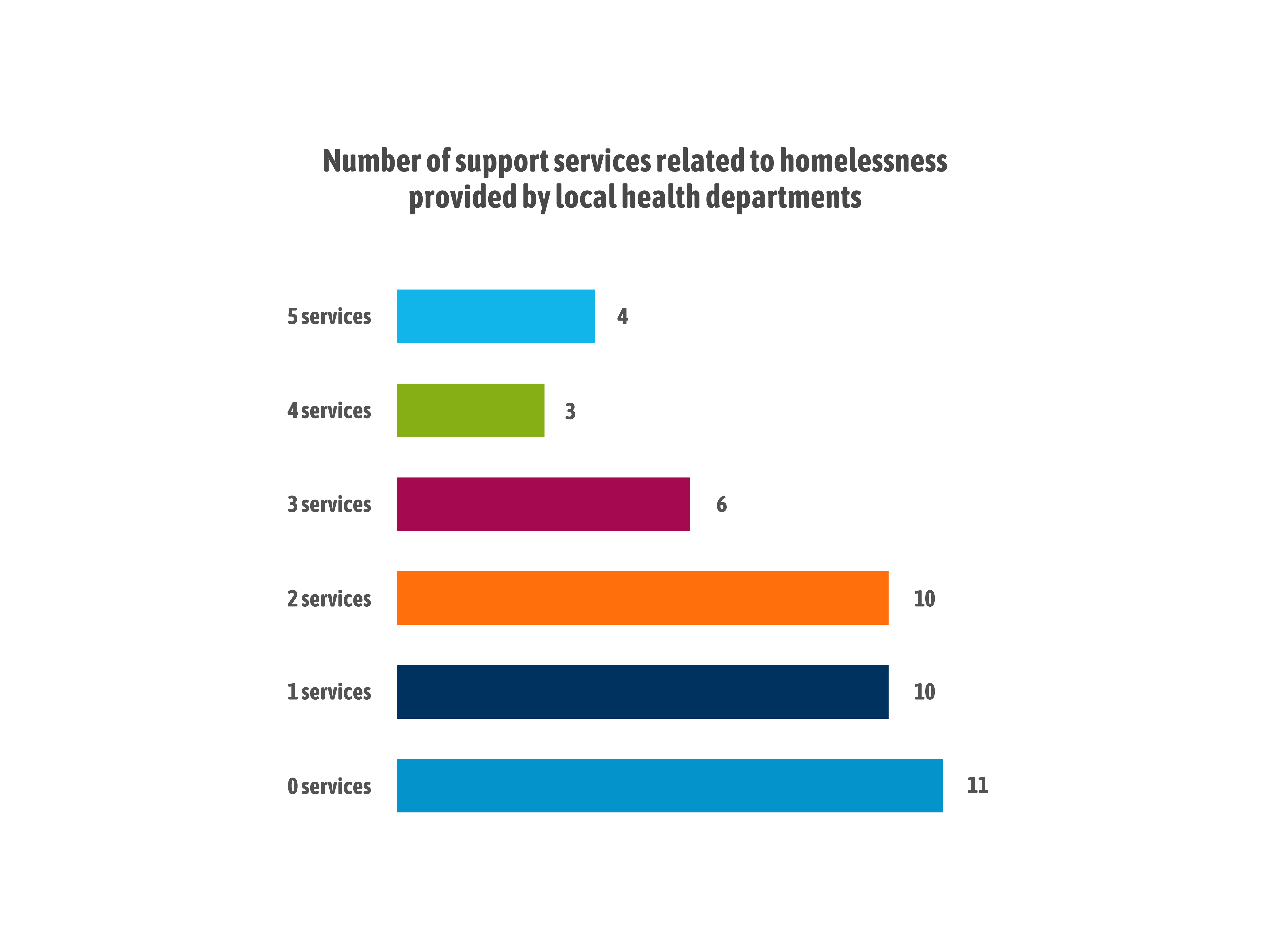
Common goals among local homeless response and public health entities are rarely reflected in formal policies.
Although half of the homelessness response organizations had set policies related to public health, a minority of respondents (26.7%) are aware of homelessness-related policies set by their local health department. Only seven respondents (15.2%) reported both.
Respondents frequently referenced health care systems or hospital partners in free-text responses, signaling ongoing confusion about the distinction between public health and health care among those working in homeless response systems.
